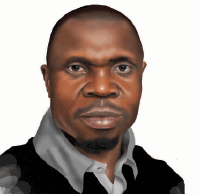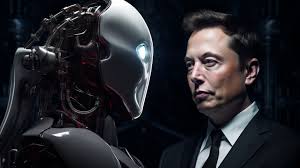A big event demands a big speech. And a political event is a big event. The biggest of such political event is the inauguration of a new president.
The coming of a new president is like a new day; a dawn; a new book; the birth of a baby; a fresh idea; something like never before. It comes with sky-level expectations; especially when the new man is an apostle of change replacing an orchestrated and the most insulted “clueless” transformer in Nigerian history.
What a presidential candidate says at the opening of a campaign can either make or mar his chances of victory at the polls; just like what he says at his inauguration after the victory can either inspire or kill the hopes of voters. This is why the two speeches are very important.
For example, when he sought to be elected as president in 2011, the out-gone president, Goodluck Jonathan, told the story of his humble beginning when he went to school without shoes. That speech revealed him so deeply; and he would be remembered for generations perhaps more by that statement than what he did as president.
Our focus today is however on the inauguration speeches; the contents and the effects. When John F. Kennedy assumed the presidency of the United States on January 20, 1961, he made one of the greatest speeches any American president or any president anywhere in the world before him had ever made.
Kennedy was young; he was radical; and his speech reflected not just the moment but his person, his ideals and his beliefs. It was a truly American speech comparable only to that activating statement by Abraham Lincoln at Gettysburg.
Thurston Clarke, in his book: Ask Not, says Kennedy appeared on the American big political scene at a time the cold war tensions were rapidly escalating. What Kennedy’s listeners heard across America and around the globe that day were words that instilled fresh hopes, calling all to “bear the burden of a long twilight struggle…against the common enemies of man: tyranny, poverty, disease, and war itself.”
However, in all that Kennedy said that day, the world at that time and the world after him will never forget the clincher: “And so my fellow Americans: ask not what your country can do for you – ask what you can do for your country.” That was the quotable quote (I will soon tell you the story of the quotable quote).
Coming back home, by the account of the All Peoples Congress during and after the presidential campaign, President Muhammadu Buhari came to power on May 29 this year to face and tackle the social and economic problems equivalent only to what Kennedy faced in the United States in 1961.
The question then is: Did Buhari make a big speech full of drama, hope and optimism? That’s what we will be looking at soon. Was there anything great about the speech we heard on May 29 at the Eagles Square? In the words of Simon Sebag Montefiore, a great speech does not just capture the truth of its era, it can also capture the big lie.
John Gabriel Hunt says that the inauguration of a president has always been an opportunity for a newly elected leader to set the tone for his upcoming administration. He is expected to establish national and international goals, propose new policies and set forth a core of political beliefs.
Hunt beliefs that aside the content of the big speech at presidential inaugurations, the delivery matters a lot. I completely agree with him. Such deliveries must be in stirring tones loaded with memorable phrases. In other words, there must be something to remember about the speech.
I still recall a chat the late President of the Senate, a man with uncommon intellect and political sagacity, Chuba Okadigbo, had with journalists some years back. When we asked his opinion on President Obasanjo’s administration, he said he had little respect for a president who had been in office for more than two years but lacks the intellectual capacity to produce “one quotable quote.”
What came to my mind immediately was that, well, Obasanjo may not have produced quotable quotes, as Okadigbo wanted us to believe, and truly so; but that cannot be attributed to his intellectual dwarfism. As a matter of fact, Obasanjo happens to be one of the few graduates of military politics whose intellectual might was and is still impressive.
Sometimes, he is crude in his utterances and actions; parading a larger than life image of himself; but his average intellectual might still remains. Yes, he hardly made any giant political quote in the mould of the Kennedys, the Obamas, the Babangidas, the Awolowos; the Maitama Sules, the Azikiwes, among others, but that does not diminish his non-negligible contribution to intellectual growth.
It is understandable why a political speech should be inspiring. Beyond that, I believe it should equally be compellingly full of surprises. When a politician at the level of a new president speaks, according to Hunt, his character is revealed. An inauguration speech must reveal and make clear the intentions of the new president.
Those were my expectations on May 29 when President Buhari took the oath of office. His assumption of office had all the trappings of a well-scripted drama. But did his speech reflect the moment? Did he create suspense and hope and inspiration in one shot? We will take a look at this next week – line by line.













